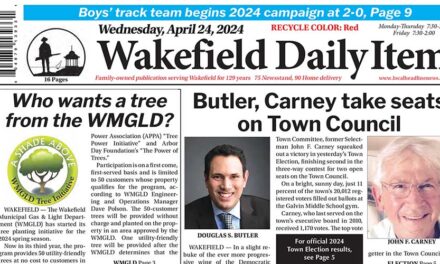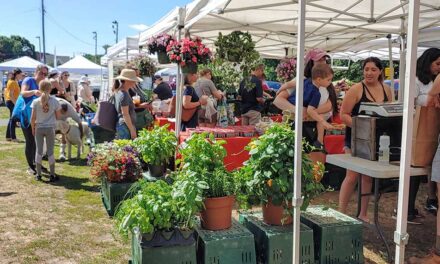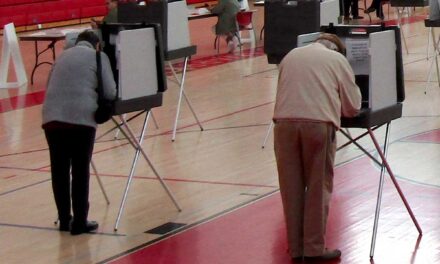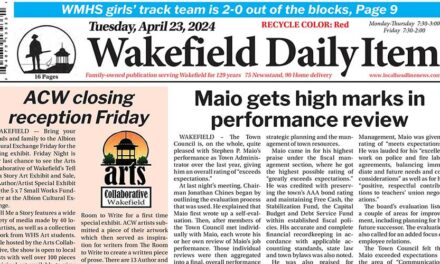Published in the November 1, 2018 edition.
By MARK SARDELLA
Well, well, well.
It seems that as the date approaches for the first recreational marijuana shops to open, more and more communities are getting cold feet – including towns that voted overwhelmingly to legalize the bud.
That includes Brookline, where they voted 17,803-11,066 to legalize recreational marijuana statewide. But now, in a community so progressive that a Prius is considered a gas-guzzler, they’ve gone all Jeff Sessions over an application by “Ascend MA” to open a 6,200 square-foot pot shop at 1032 Beacon St.
Opponents held a rally outside the proposed location last week.
“It will be too close to schools!” the neo-prohibitionists wailed.
That’s weird. Why is it bad to sell “medicine” near a school? I thought there was “no evidence that legalizing pot increases use by young people.” What happened to, “I’d rather have my kid smoke a little weed than drink alcohol?”
Suddenly, they were echoing all the pre-legalization warnings of pot opponents.
“It will lead to loitering!” the born-again puritans warned.
Next thing you know, they’ll be claiming that pot destroys ambition and makes you lazy.
I suspect that a lot of people in Massachusetts who didn’t bother to read the referendum question and just listened to the propaganda of the billion-dollar pot lobby are now regretting their “Yes” vote on legalization.
That number will likely increase even more once people realize that their auto insurance premiums are going up due to the fact that pot is now legal in Massachusetts.
Pot smokers almost uniformly insist that they “drive better” while stoned. In the run-up to the 2016 vote that legalized recreational weed, you no doubt heard the claims that “There’s no evidence that legalizing pot leads to more auto accidents.”
The insurance industry, which lives and dies by data and statistics, begs to differ. A new study by the Insurance Institute for Highway Safety found that car crashes are up as much as 6 percent in Colorado, Nevada, Oregon and Washington. I wonder what all of those states have in common.
Back in 2016, if you pointed out that legalizing another drug has social costs, you were labeled a “prohibitionist,” “out-of-touch” or just plain “old.” (Ageism, it turns out, is an underreported side effect of marijuana use.)
Now, with the day of reckoning upon us, NIMBYism is all the rage. Suddenly they don’t want pot shops in their towns, near their schools or in their neighborhoods.
The Boston
Globe reports that of the 351 municipalities in Massachusetts, at least 189 have banned retail pot stores, and in most cases, cultivation facilities and other cannabis operations as well. Wakefield falls into that group.
We, at least, have been consistent. Wakefield voters rejected legalization in November of 2016. The board formerly known as selectmen has voted consistently against any marijuana operations in Wakefield. Town Meeting voters overwhelmingly passed several measures prohibiting pot businesses of any kind in Wakefield.
Another Boston
Globe story cites the very PC town of Concord, which is single-handedly saving the planet with bans on plastic water bottles, plastic bags and foam coffee cups. The virtuous citizens of Concord also voted in favor of legalizing recreational marijuana in 2016. But last June, they enacted local a ban on recreational marijuana businesses, citing fears of allowing them near schools. Apparently, it’s OK with the voters of Concord if other people’s children are exposed to marijuana shops, just not their precious Spencer and Muffy.
If pot is so innocuous that they voted to legalize it, why are they trying to keep it out of their own town?
Milton, Lexington and Weston are just a few more examples of upper-class towns that have banned retail marijuana sales within their own borders. It begs the question: would the citizens of these towns have voted to legalize marijuana if all citizens in all communities were equally exposed to the consequences of that vote?
That’s a rhetorical question.
The reason the marijuana industry included those “opt-out” clauses in the law they wrote wasn’t out of any sense of fair-play. It was self-preservation. They knew that most people wouldn’t vote to legalize marijuana if they thought it was going to be anywhere near them.
It’s a curious response to a substance we’re told is not just innocuous, but medicine!
Apparently some of our tonier communities have concluded that, for them, it would be a prescription for disaster.




